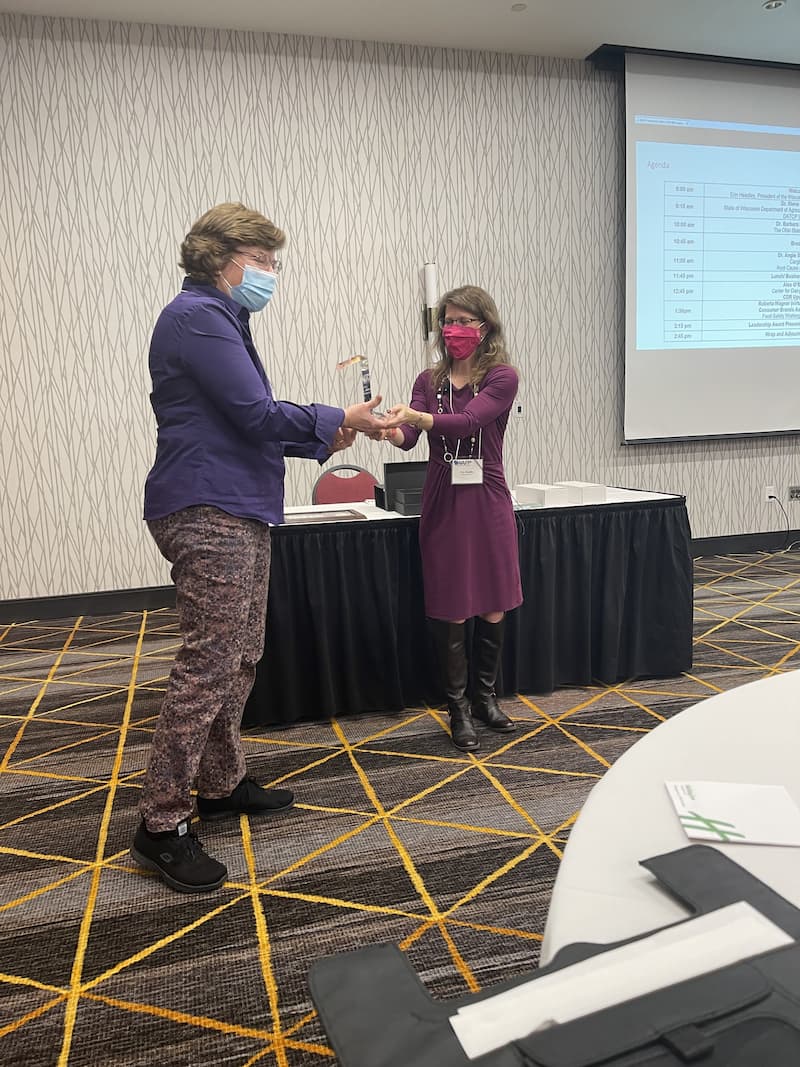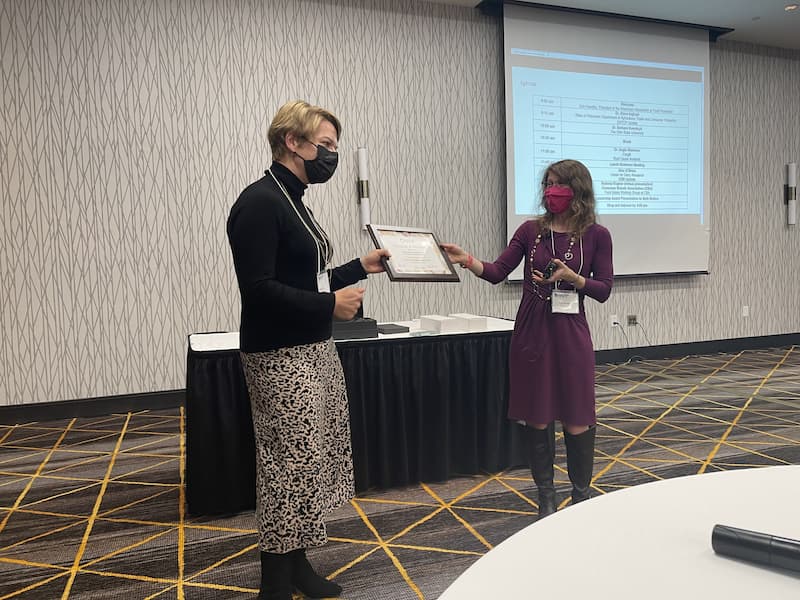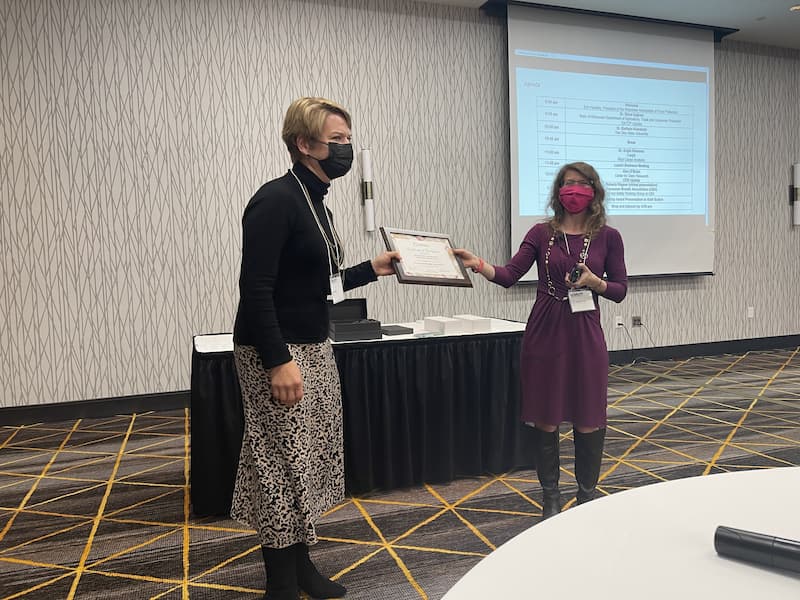Can you believe it? We had a face to face WAFP Workshop! The speakers were great with in – person and virtual presentations! No surprise that resiliency was key for adapting to our Covid work environment. Companies, academia, and government all tried and are working differently than before. With Erin Headley hosting as the outgoing WAFP President, we had time for questions, introductions, eating, and networking face to face. What a great way to learn and connect! Presentations will be posted in our archived presentations section for you to review if you were not able to join us at the workshop. Thank you to Kara Baldus, Adam Brock and support from Holiday Inn West for a wonderful session.
The WAFP board has some new faces with Max Golden as the new president, Takiyah Ball joining as second vice president, Marlo Darken as the new Administrative Officer, Josie Greve-Peterson as a new member of the Membership Committee, and Kyla Betts as a new member of the Scholarship and Communication Committee. Let Max know if you would like to be more involved with WAFP.

Dr. Steve Ingham provided DATCP updates including accomplishments this past year and goals for next year. These updates reflect work being done today and include education efforts promoting preventive control planning at the manufacturing plant and farmer levels. He previewed what is coming next regarding cooperative work with the FDA and committee work. He also mentioned DATCP is seeking advice on ATCP 75 (Retail Food Establishments) and 72 (Hotel, Motel, and Tourist Rooming Houses) and will be working on scope statements for ATCP 82 (Bulk Milk Collection, Sampling, and Transportation) and 65 (Milk and Milk Products). There was discussion about how to provide advice for cottage industry questions including getting people to resources through DATCP licensing specialists, the Food Research Institute (Adam Borger) and Food Science (Dr. Barbara Ingham).
Dr. Barbara Kowalcyk, Director of the Center for Foodborne Illness Research and Prevention, shared work being done at the Ohio State University regarding retail and food bank food safety. She is seeking collaborations to expand food safety studies with food delivery and certified food managers.
Alex O’Brien, Dairy Safety and Quality Coordinator, provided a Center for Dairy Research renovation update at UW Madison. He also introduced some new faces with the organization and new courses being offered at CDR.
Roberta Wagner, Vice President of Regulatory and Technical Affairs at the Consumer Brands Association, provided details about core services and advocacy priorities with consumer brands. Their survey of 23 companies provided positive feedback about the best practices documents that went to industry. Documents were reviewed by the CDC and the FDA but were not vetted through the normal process and were found helpful during Covid. Ten policies developed during Covid are being recommended to become permanent. Focus areas for smarter Food Safety include traceability and developing a 2 tier inspection program.
Dr. Angie Siemens, Cargill Vice President, Food Safety, Quality & Regulatory, provided new insights about root cause analysis encouraging companies to find and investigate near misses in addition to events. She reviewed examples where she found events were due to organizational system deficiencies regarding roles and responsibilities. Companies can mention “retraining is needed”, but the problems can occur again if you don’t update structure. Reframing so you are setting employees up to succeed is the right approach.










